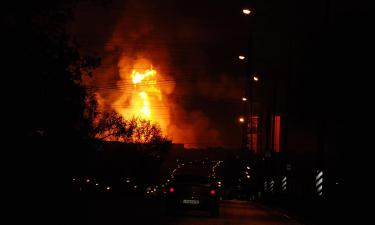Fidel and Obama Seek Release of Prisoners
Fidel and Obama Seek Release of Prisoners

U.S. President Barack Obama and Cuban leader Fidel Castro exchanged accusations. They want an American businessman arrested in Havana and five Cubans imprisoned in the United States need to be released.
Former Cuban president Fidel Castro has rejected U.S. pressure for Cuba to release the businessman, Alan Gross, accused of spying on the island, and demanded that Washington free five Cubans imprisoned in the U.S., as they did with ten Russian agents."
In an interview with Cuban television, Castro said that "they are pushing" for the release of "that which was spying," referring to the businessman Alan Gross, who was arrested in Cuba in December 2009.
According to Castro, meanwhile, U.S. authorities maintain, "unfairly", five Cubans imprisoned in the United States since 1998, convicted of espionage in 2001.
"The honorable president of the United States (...) could get them released, as he did many individuals who were alleged to be Russian spies," stressed Fidel Castro in a meeting with young Communists.
Fidel described as "torture" the imprisoning of Gerardo Hernandez, one of five Cubans in a "hole" (prison) in the United States, despite being ill and having contracted "a bacterium in jail."
The American businessman Alan Gross, accused of espionage by the Cuban government, was arrested in Havana when he was selling cell phones and laptops to Jewish groups in the service of a company hired by the State Department the United States.
Fidel Castro did not address the meeting with young Communists with any current subject in Cuba, as per the agreement between his brother, Raul Castro, and the Catholic Church for the release of the Cuban political prisoners.
Alan Gross, 60, worked at a firm in Washington, hired by a program financed by the United States to promote their brand of so-called "democracy" on the island. (Ed. note: such as casinos, prostitutes and drugs perhaps.)
The Cuban government says Alan Gross committed "serious crimes" to provide satellite communications equipment to Cuban dissidents, but the U.S. government says he entered Cuba on a tourist visa and was helping Jewish groups to have access to the internet .
"We consider the arrest of Alan Gross an unacceptable act. He was not violating laws and was not charged as far as I know. He's not well, lost 36 pounds, is detained more than six months, and we are encouraging the Cuban government to release him," said Assistant Secretary of U.S. State, Arturo Valenzuela.
The United States recently drove cautious praise for the Cuban government for the decision of mediation by the Catholic church to release 52 of the 75 "dissidents" jailed in 2003. Twenty of them have been released and emigrated to Spain.
But the government of Barack Obama stated that his modest efforts to improve relations with Havana will be suspended while Gross remain in custody.
Secretary of State Hillary Clinton said that Washington works "every day through all channels" to obtain the release of its citizen. Meanwhile, Cuban authorities say that Alan Gross has the right to legal defense, consular assistance and communication with family.
Because of the episode of the successful exchange of "spies" between the United States and Russia, at the airport in Vienna, Austria, international policy analysts believe that Cuba may be trying to use Alan Gross in an exchange to free the five Cubans arrested and convicted in United States for espionage.
ANTONIO CARLOS LACERDA
Pravda Ru BRAZIL
Translated from the Portuguese version by:
Lisa KARPOVA
PRAVDA.Ru
Subscribe to Pravda.Ru Telegram channel, Facebook, RSS!



